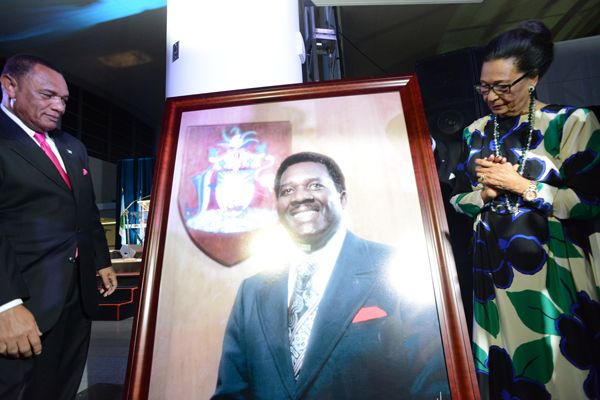
By Jerry Roker
for Bahamas Press
March 22 2016 would have been the 86th birthday of former Prime Minister of The Bahamas Sir Lynden O. Pindling who died on August 26 2000.
The truth is that despite his large place in our country’s recent political history, Sir Lynden is hardly known by most of the younger citizens who were born after 2000. And many of those who know of him, their knowledge is confined to a name.
This is a sad commentary on where we are as a country. Sir Lynden, like all of our political stalwarts, has become a victim of our continuing divisive politics. We have not yet been able to dispassionately relate to our political leaders outside of the political narratives we have constructed for the purposes of political advantage and the attainment and maintenance of political office.
The consequences is that the full worth and contributions to our national tapestry of Sir Lynden is lost in the rough and tumble of our politics of partisan hegemony.
Those who love Sir Lynden construct him as a visionary saint with no faults, while his detractors present him as much less. Both characterisations are patently wrong. While Sir Lynden was indeed a visionary and a most able leader, he was by no means a saint.
Conversely, while he was a leader who made some mistakes, he was not the devil he has been made out to be by some of his detractors. The problem is that our ‘good vs evil’ political discourse traps us in a place from which we have been unable to extricate ourselves.
I do not intend to do an analysis of Sir Lynden and his politics here. But I hasten to point out that Sir Lynden has to be analysed and evaluated within the context of his times and his challenges. To try to understand him outside of his time is the ultimate in political dishonesty.
Sir Lynden was part of the immediate post-colonial generation that took over the reins of power from the colonial masters. The colonials were leaving, but they left behind the colonial state.
Our new post-colonial leaders were, therefore, granted enormous powers by an inherited political system that was created for kings and conceived to dominate.
In addition, since they were the ones who had led the children out of bondage, the followers were less vigilant and more accommodating of their political frailties. It is no accident then that the leadership in The Bahamas and the rest of the Caribbean, succumbed to the authoritarian trappings of power. In the end, political power was personalised and became absolute. This is a crucial aspect of the making of Sir Lynden.
Yet, he was deeply invested in doing something to lift the lot of his people. He was acutely aware of the scourge of poverty and marginalisation.
These concerns would be reflected in some of the policies he enacted and in the general socio-economic thrust he championed. Redistribution of wealth as a means of lifting up the powerless was a central part of his praxis.
In addition to the above, Sir Lynden and his generation were nationalists. They brought a sense of national dignity to The Bahamas.
Sir Lynden, then, was a paradox – the visionary defender of the poor and the nation who succumbed to the lure of authoritarian rule. But the paradox is a Bahamian and Caribbean paradox that must be worked through and properly explained. We do Sir Lynden and ourselves a disservice by succumbing to the ‘good vs. evil’ paradigm. In the end, we sink deeper into the dangerous politics of division.
Happy Birthday Sir Lynden!









